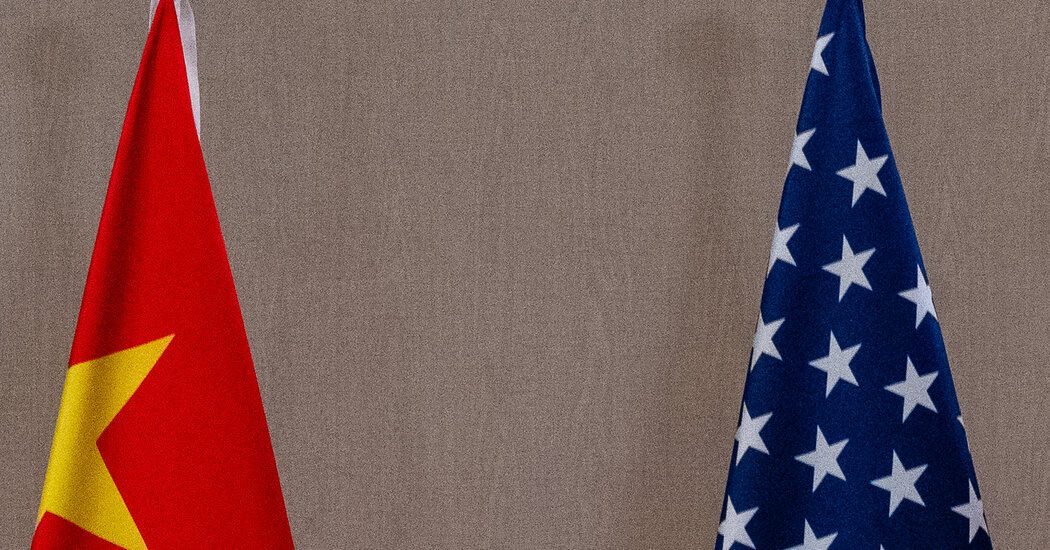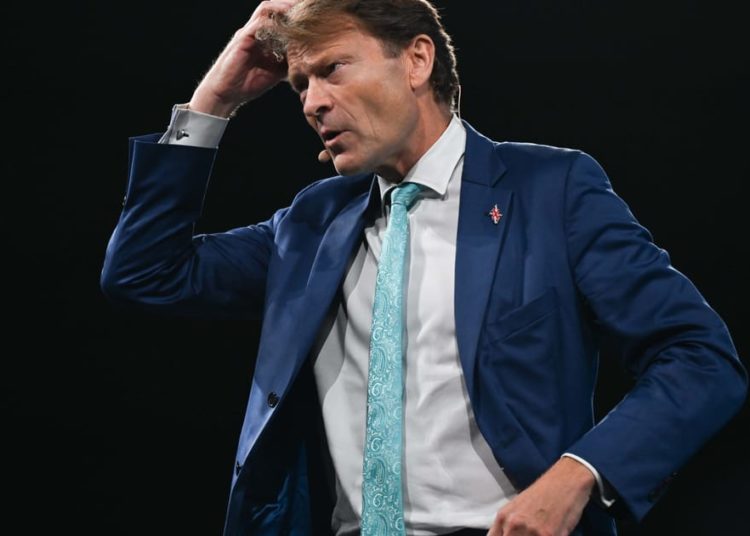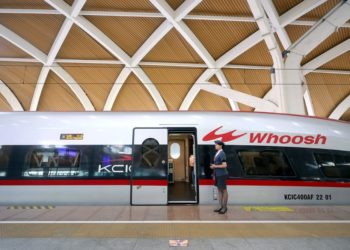President Trump has used tariffs to try to reduce American reliance on Chinese exports and prevent China’s factory overcapacity from swamping the United States economy. But his effort has hit an obstacle: Beijing was already well on its way to weaning its economy from the United States.
For two decades, China has systematically pursued economic self-reliance. China has been able to establish choke points to pressure the U.S. economy, while making it harder for Washington to block China.
Self-reliance has been a cornerstone of Chinese policymaking not just under Xi Jinping, the country’s top leader since 2012, but also under his predecessor, Hu Jintao.
Their program of replacing imported manufactured goods with domestic production has been costly and often inefficient. But it has left the West with dwindling leverage it can deploy during disputes.
China’s leaders have become increasingly public about emphasizing the self-reliance drive. It took a prominent place at an annual gathering of the Communist Party’s Central Committee last month, when the country’s top officials laid out a sketch of China’s next five-year plan.
“We must first and foremost intensify efforts toward achieving greater self-reliance and strength in science and technology,” Mr. Xi said in a speech.
This year, China has wielded one of its most powerful choke points — its almost complete control over the world’s supply of rare earth metals and rare earth magnets.
Faced with restrictions on China’s supply of rare earths, Mr. Trump last week accepted a compromise with Mr. Xi.
Their agreement left this year’s new U.S. tariffs for China similar to those for countries in Southeast Asia and lower than the tariffs for countries like India and Brazil, with which the United States has traditionally maintained closer relations.
China’s threat to put extremely tight controls on its rare earth exports also helped persuade the Trump administration to suspend a policy it adopted in September to expand the number of military-related Chinese companies that Americans are not allowed to do business with.
China has gained other choke points through its policies of manufacturing self-reliance. It is the world’s dominant producer of the ingredients needed to make antibiotics and other pharmaceuticals. It is also the main producer of a lot of electrical equipment, low-end computer chips and much more.
The United States has been left with fewer options when it needs to fight back. When Washington wanted to pressure Beijing to back down on rare earth export controls, the Trump administration threatened to restrict some of the last categories of crucial American exports that China still needs, like aircraft parts.
Chinese officials are now calling for their country to become even more self-reliant.
“A comprehensive industrial system benefits the enhanced resilience of supply chains,” Tian Peiyan, one of Xi Jinping’s senior policy advisers, wrote in a journal over the weekend. He added that a very broad industrial base could create “a bulwark of economic security.”
When China joined the World Trade Organization at the end of 2001, it depended on imports for a wide range of goods. The cars, telecommunications gear, power generation equipment and other manufactured goods that China made then were inferior to imports, prompting many Chinese companies and consumers to prefer imports.
Since then, China has made enormous strides in the quality and quantity of these and many other goods.
“Among 500 major industrial products, my country ranks first globally in the production of over 220,” Jin Zhuanglong, a prominent Chinese engineer, said last year when was minister of industry and information technology.
Last month’s Central Committee gathering, or plenum, ordered that China would, starting next year, double down on its emphasis on advanced manufacturing. The plenum document ordered government and business to “work faster to boost China’s strength in manufacturing, product quality, aerospace, transportation, and cyberspace.”
Beijing has combined the vast scale of its manufacturing operations with considerable state direction. Only a handful of business sectors are left in which American and European industries still lead the world, notably commercial aircraft and a few of the most advanced semiconductors.
“President Xi has been quite good at finding ways to engineer American imports out of China’s supply chains over time, apart from the most advanced semiconductors designed but not made by U.S. firms,” said Brad Setser, a China specialist at the Council on Foreign Relations.
Despite more than a decade of heavy public investment, China lags in making the fastest semiconductors, needed for artificial intelligence and the latest military technologies. But Chinese companies have proved adept at buying and smuggling Nvidia microchips.
China’s policies to replace imports with domestic products have included the Indigenous Innovation campaign adopted soon after China joined the W.T.O., Made in China 2025 starting in 2015, and the effort called “high quality productive forces” in the past two years.
The state-controlled banking system has lent heavily at low interest rates to manufacturers of electric cars and solar panels, and China has become the largest exporter of these goods.
For some products, China has achieved self-reliance with protectionist trade policies. Since 2008, China has used tariffs and fees that more than double the sticker prices of imported cars and sport utility vehicles with large gasoline engines.
That has not only discouraged imports but has meant that Chinese consumers never became accustomed to powerful and bulky vehicles. This is one reason they have been quick to switch over to electric cars and hybrid gasoline-electric cars, which together now comprise more than half the Chinese market.
Since early in Mr. Trump’s first term, American officials tended to dismiss concerns that China might use the choke points it was developing. To do so would damage China’s credibility as a destination for foreign investment, they argued, and would prompt multinationals to shift their purchases elsewhere.
That could yet happen. But China’s leaders, as shown last month, seemed determined to pursue even greater self-reliance.
The plenum’s closing statement said, “We must consolidate and expand our advantages, break through bottlenecks and constraints, and strengthen our shortcomings and weaknesses.”
Chris Buckley contributed reporting and Li You contributed research.
Keith Bradsher is the Beijing bureau chief for The Times. He previously served as bureau chief in Shanghai, Hong Kong and Detroit and as a Washington correspondent. He lived and reported in mainland China through the pandemic.
The post China Started Separating Its Economy From the West Years Ago appeared first on New York Times.




